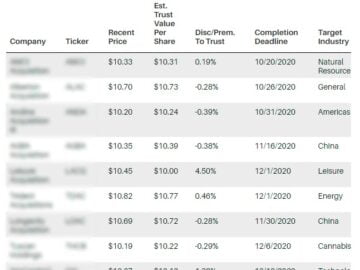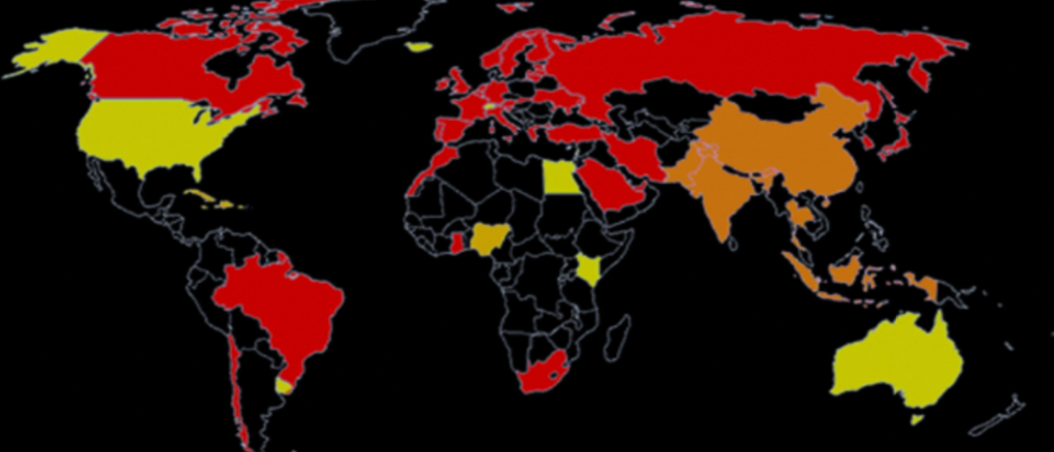Seeking out great stocks to buy is essential, but many would say it’s even more important to know which stocks to steer clear of. A losing stock can eat away at your precious long-term returns. So, figuring out which stocks to trim or get rid of is essential for proper portfolio maintenance.
Even the best gardens need pruning and our team has spotted a few stocks that seem like prime candidates for selling or avoiding. Continue reading to find out which three stocks our team is staying away from this week.
Headwinds against e-commerce car vendor Carvana (CVNA) had already been intensifying before the sizable ramp up to its vehicle inventory in the first-quarter. Management recently admitted that it accelerated its car buying business at the wrong time, during a worsening economic environment, causing investors to flee the stock in search of greener pastures. CVNA could continue to burn through cash at an alarming rate as it faces threats to the value of its inventory.
“It has become clear over the past few months that the company is facing serious challenges to the business,” Morgan Stanley analyst Adam Jonas wrote in a note to clients after he downgraded CVNA to Equal Weight from Overweight and slashed the price target by 70% to $105, down from $360. “By the company’s own admission, it had accelerated growth at precisely the wrong time into a consumer slowdown leaving a major mismatch between capacity and demand, creating a liquidity crunch,” he continued.
The company’s liquidity issues are likely to be compounded as the Fed continues to boost benchmark interest rates, making it more expensive to take out loans. With its business model, Carvana is also at risk of a decline in used car prices as that would devalue its inventory, and a pullback in prices is likely as interest rates rise.
During Carvana’s most recent quarterly announcement, the company reported a bigger-than-expected quarterly loss along with revenue that beat analyst expectations. Results showed a $1 billion increase in equity along with $3.275 billion in debt.
Carvana may look like a bargain down nearly 82% since the beginning of the year, but with interest rates rising and growing concerns of a looming economic recession, the company could be further wrung out as economic growth slows.
Fintech company Upstart Holdings (UPST) share price is down more than 93% from its October ATH and it may have more to go as bank partners tighten their fists. Institutional lenders are less willing to fund Upstart’s loans than ever and it makes sense for backers to be so cautious in the current macroeconomic environment. Rising interest rates will continue to add pressure to consumers leading to more defaults. Upstart is especially vulnerable as its AI models have yet to be tested during a significant down period in the credit cycle.
In Upstart’s Q2 report, management cited another reason for the lower outlook. The company more than doubled the amount in loans it funded with its own cash in just a single quarter. At the end of Q1, the company held $600 million in loans on its own balance sheet, up from $250 million in the previous quarter, severely exposing its balance sheet to credit risk at what could be the worst possible time.
In the second quarter the company saw adjusted earnings of $0.01 per share from revenue of $228 million, missing the consensus expectation of $0.10 per share by 90%. “This quarter’s results are disappointing and reflect a difficult macroeconomic environment that led to funding constraints in our marketplace. In response we’re taking the necessary actions to build a more resilient and committed funding model over time,” said Dave Girouard, co-founder and CEO of Upstart. Until sustainable momentum is realized, we’re sticking to the sidelines.
Food delivery leader and pandemic darling DoorDash (DASH) was one of the big winners in the shift to stay-at-home culture. Between 2019 and 2021 DASH revenue increased by 451% from $885 million to $4.88 billion. But once the economic reopening was complete, Wall Street’s enthusiasm over the stock sharply halted. Since hitting its peak in November of last year, the stock has plunged more than 73%. Now that the tide has washed out, investors are left to access what’s left, searching for an answer to the looming question – is profitability in the cards for DoorDash?
DoorDash has never generated a profit with the exception of the second quarter of 2020 where it made a profit of $23 million “It took a global pandemic to drive the firm’s one quarter of profitability. The firm has not been profitable since, and we think it may never be,” said David Trainer, the CEO and founder of New Constructs.
The company is expecting $49 to $51 billion in gross order volume in 2022, implying a modest 14% increase from $41.9 billion last year. However, that’s not enough to justify DASH’s lofty valuation. Currently the stock trades at a price-to-sales multiple of 4.6, expensive when compared to top competitors like Uber Technologies (UBER) which trades at a price-to-sales multiple of 2.1 – half that of DASH. Its EPS is estimated to remain negative in 2022 and 2023. The stock has declined 55% since the beginning of the year to close Friday’s session at $64.99.













